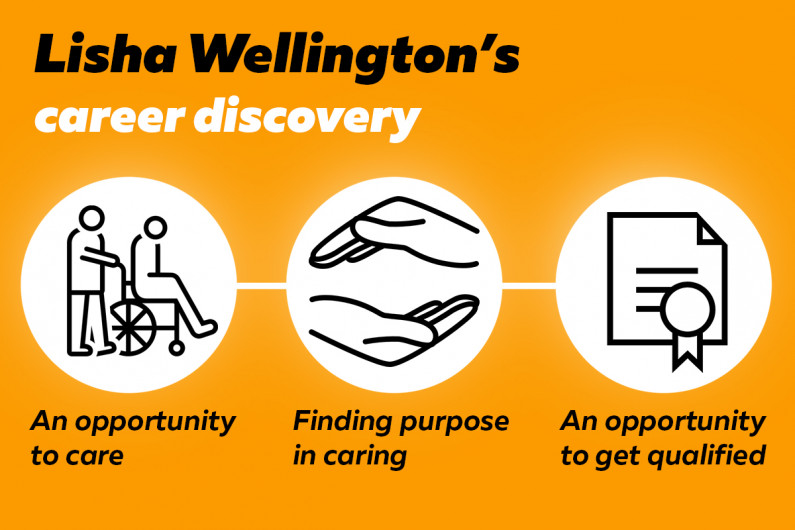How Lisha Wellington found her calling as a home care assistant

How Lisha Wellington became a home care assistant, and why she loves it.
What's on this page?
What it's like being a home care assistant
How did you become a home care assistant at a rest home?
“I walked in off the street to apply for a cleaning job, and they asked if I was interested in caregiving.
"I had no experience whatsoever with the elderly, but I walked around the place, saw the awesome team, and thought, ‘Maybe I could do something like this.’ ”
How busy is each shift and how do you manage that?
“I have 35 residents to look after. I have to make sure I follow the care plan for each resident – a lot can change in a week and they can deteriorate.
“First I check in with each resident. If I’m on afternoon shift I may say, ‘How are you feeling?'
"I make a plan with them and I give them a timeframe for when I’ll come back – before the news, or after the news. Then I see them in order, but I’m also there for them throughout the day if they need help. I say, ‘I’m just a jingle away – ring the bell for assistance.’ ”
How did you find your Level 4 certificate training?
“There were a few of us doing the New Zealand Certificate in Health and Wellbeing (Advanced Support) course. We supported one another. We’ve got a great team – I love my co-workers.
“My certificate has helped heaps. I put a lot more detail in my notes now about the care I’ve given.
“I did find some things hard. I had to answer questions like, ‘How did I manage myself in a situation?’ – such as with dementia.
“I had always thought of strategies, or I’d go to our registered nurse and ask for suggestions, but I wasn’t used to thinking about myself in the role.”
The pros and cons of the role
What’s difficult about your job?
“You’ve got to learn to manage aggressive behaviour – with dementia people may swear at you, or threaten you.
“Sometimes I take things to heart. I know they don’t mean what they are saying but I’ve had a few tears at times. I’ve gone out, taken a big breath and thought, ‘You can do this Lish, don’t take it to heart.’ ”
How do you cope with the death of residents?
“That happens quite often. If I’m on board and they’ve passed away, I get my co-worker to come in and help me freshen them up before the undertaker comes.
“I usually pay my respects first. I have a breather at the door, a quiet moment, a minute’s silence. I may have a few tears. I’m sad that they’re gone but I know they’re at peace – they’re not suffering.
“For a couple of residents I’ve been there, holding their hand, supporting the family. It’s harder watching the family suffer. Relating to the family – supporting them – is part of the job, especially when caring for people at the end of their life.”
What gives you satisfaction in your job?
“The elderly. I have had problems during my life but as soon as I walk through the door, everything changes. I’m there for a purpose – for them.
“From day one I’ve loved it. I wish I’d done it in my younger years, because I’ve found something I really enjoy doing. The five years I’ve been here – they have been such a blessing.
"I'm proud to be a care giver."
Find out more
Updated 2 Dec 2019